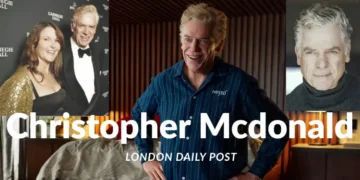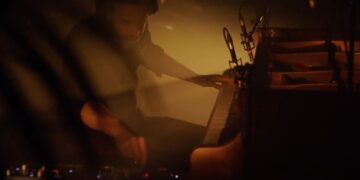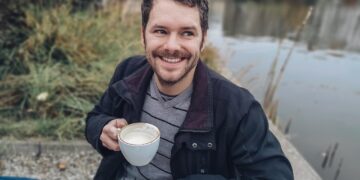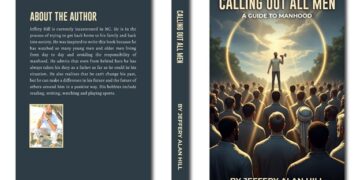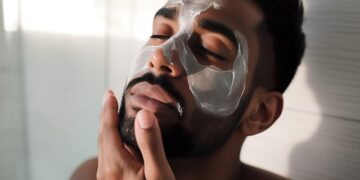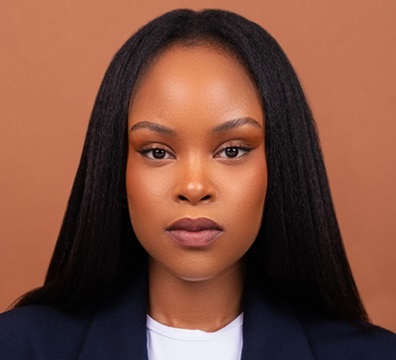Coco Kariuki is an actress known for her roles in Nyumbani where she plays the role of Wachera, a fiercely independent young Kenyan chef who struggles with living so far away from home, A Cradle Of Doom where Coco plays the main protagonist, Alisha who develops postpartum psychosis after dealing with severe anxiety and sleep deprivation, and in Katlegho, about a young woman, living with her best friend while navigating her abusive relationship.
Coco’s training began at a young age at the Agakhan Academy, where she would be found on stage in productions, or taking up classes for vocal training. She later honed her craft further having graduated with a BFA in Acting from the American Musical and Dramatic academy. Coco has been trained in stage combat; armed and unarmed, acting for film and television, as well as stage performance.
We sat down with Coco for an in depth interview to explore her journey as a Kenyan-born actress in Hollywood.
Welcome Coco, what got you into acting and made you realize that it was your chosen path?
I’ve been acting since I was in fourth grade. It started with LAMDA classes at school and quickly progressed to me being a part of the plays. I loved being a part of big productions, and the rehearsal process. I loved the process of getting to know the character I’m playing. I was a really confident kid, however as the years went on and I went through life, I lost a lot of my confidence and became a pretty anxious teenager. Acting became a medium for me to gain my confidence back. It acted almost like exposure therapy, and the more I kept on exercising the muscle, the more confidence I got. Additionally, directing my characters became a time where I was completely outside of myself and could focus on the creative choices I would be making. I decided to go into acting professionally because it is the only thing that makes me feel fulfilled. I got good grades in my other subjects (excluding math for the most part), and so my relatives told me that I was wasting my potential and would end up unable to support myself or have a fulfilling life. I refused to believe the lie then, and I refuse to believe it to this day. I love my craft; I think it’s the most challenging and intriguing thing to do. It makes me feel whole, and it gives me a lot of peace and fulfillment.
What are some of your early acting experiences?
The first performance I was ever in was rumpus in the rainforest. I was in grade 3, and I played the jaguar. I thought it was the coolest thing ever and had a whole solo to perform. I always hated having to go for tuition after school, but I remember just how enthused I was every time I had to go to the dance studio to rehearse my choreography. I was a pretty un-athletic kid, but I would sprint to the thematic room to go over my songs, arriving to the scene out of breath, but on time.
In the saturated world of entertainment, how do you stand out from the crowd?
I’m a trained vocalist and love to sing. I went up to grade five at the Royal Schools of Music and performed at all the talent shows throughout my primary and high school years. I even performed at events back in Kenya.
I also speak conversational Swahili and am a pretty extroverted person. I can do make-up both on myself and other people (I took a course in college). I can also swim and jump rope. I’m also trained in stage combat, both unarmed and armed. I trained in college and always had a blast making up the choreography. Finally, I am a writer and really enjoy writing comedic scripts.
How would you describe the projects that you typically prefer?
I don’t have a preference for the genre of films I am in, however, I do enjoy playing characters that are complicated and maybe even struggling mentally, because it gives me a lot of homework to do when it comes to digging into the character. I also think that it is very important for difficult stories to be told, specifically those that higgling mental health issues and illnesses as the rate of suicide and affliction of illness has skyrocketed among our youth today, covid having being a large contributor to this pandemic.
What is your creative process when preparing for a movie?
Without giving too much away, I first read the entire script to understand the storyline and my characters relationship to other characters. I highlight my lines and then start digging. I break down my script finding my internal and external dialogue, if there are no circumstances given at any point, I come up with my own storyline to keep my creative choices grounded in truth and then finally, I would start rehearsals and incorporate a few acting exercises for example, an Italian run or scaling my performance from 0-10 and seeing what works best etc. I fully break down the script and do some rehearsals before memorizing lines so that I don’t lock anything down prematurely.
What makes a good filming environment for you?
I think that readiness and professionalism along with ease and excitement towards the work makes for a really good filming environment. I feel that everyone being friendly to one another and having a positive attitude creates a space where we can be creative and move with ease. I love humor on sets as well. However, just when it’s appropriate, hence professionalism is also needed. As they say, Time is money, and we can’t afford to run behind schedule because of endless chatter, or unpreparedness. A good balance between the two makes for a great filming environment.
What’s been the pros and cons of pursuing your acting career?
The pros of pursuing an acting career in my opinion, are that I get to be my creative and expressive self. That is worth a lot to me. I also am really loving the industry, getting to network with fellow artists from all backgrounds who have similar goals. I am especially really happy about the connections and art I am making with my fellow Kenyans in the diaspora. I love that I get to experience what feels like several lifetimes through my craft. The biggest con that stands out to me would be the financial risk that comes with acting. However, I believe that God has put this dream on my heart for a reason and will take care of my every need as they come.
Has there been one particular moment in your career that you’re most proud of?
The moment I am the proudest of happened prior to me moving to LA. I was in a production of the play Rumors back in Nairobi, Kenya. My family was dealing with a lot and so none of them could come and watch my performance, neither could I not do the play because it was a good opportunity for me, and I had worked hard for the performance. It was a really rough day; my anxiety was flailing up and I remember physically being sick and shaking uncontrollable before getting on stage. Once on stage, in the adrenaline of it all, I forgot that the stage door got Broken the previous night and so I had to jimmy a nail to get it to open. I panicked and exited through the main door and choked up on my lines on my way out. I remember the overwhelming feeling of disappointment and anxiety that was going through my head. However, I went backstage, said a prayer, and got my breathing under control. I still don’t know how I pulled it off, but I got through the rest of my performance seamlessly and when the play was over, I walked out to meet the guests briefly, then called an Uber and headed home. I’m proud of this moment because I learnt how to connect with my body. I didn’t give up and saw the performance through.
Who are your filmmaker influences growing up that helped to mold you into who you are today?
I grew up in a very blended family. I had a family member pass away due to HIV/AIDS and though I was very young and couldn’t remember the whole thing, my oldest siblings told me about it and the toll it took on them. The show Shuga, written by Amanda Lane, Kemi Adesoye and Tunde Aladese, dealt heavily with the topic of HIV/AIDS, in trying to stop the spread of the illness. It also highlighted issues such as gender based violence and female empowerment. I remember the film Toto Millionaire (translates to ‘Child Millionaire’), written and directed by Simiyu Barasa. It came out in the early 2000’s, it was about a 10 year old boy who lived in poverty who falls into wealth but has to maneuver around people trying to con him out of it. It was a comedy; to me it also spoke to how much some African kids really struggle in impoverished homes. I remember Kenyan and African films always having powerful messages addressing current issues society was facing at that present time. These influences made me appreciate my culture and the everyday hustle of the average Kenyan, as well as giving me a deep longing to make art that is impactful. Around the age of 12, I was infatuated with reading books. I would spend a lot of my lunch breaks reading in the library or in an empty classroom, picturing every character and described environment in my mind. I read the book The Help, which was about Black American Maids in the 1960’s, their plight and hardships they endured while working in White American homes under Jim Crow Law. I hadn’t started learning about the Atlantic slave trade, Slavery or segregation and protests in school yet, so this was my introduction to a world and struggle I never knew existed. When the film came out, I didn’t get to see it right away, but the film really made me empathize with Black Americans and everything they have overcome. A lot of the films I watched growing up had socio-political themes. This made me understand film as a medium of education and this is what I want to do with my career. Tell powerful stories through my craft that will empower the next generation.
Which actors and directors would you like to collaborate with in future?
I would like to collaborate with Blitz Bazawule. He is a Ghanaian artist who directed the feature film The Burial of Kojo. He leans heavily on his heritage and is showcasing African stories and culture beautifully. I would also like to collaborate with the writer Phylis Thinki. She is a writer on the hit show Found and also wrote and directed the series coming to Hollywood. Her work portraying the journey of African immigrants into the United States, as well as her work in highlighting racial injustice, and finding missing people from marginalized groups speaks to her range, but also her dedication to telling stories for people who need a light shone on them.
I’d also like to work with Jordan Peel in the future. I grew up watching his skits and was blown away at how hilariously he portrayed so many different characters. Seeing his pivot into film and the more serious tone his work carried made me admire his artistry even more.
An actor I would be honored to work beside is Issa Rae. I watched her journey from her YouTube days of Awkward Black girl, down to her most recent appearance in. The movie Barbie and I would love to collaborate with her.
If you had one message to give to your fans, what would it be?
I really urge everyone to be kinder to themselves. I lost my brother in 2017 to depression, I myself have struggled with anxiety and come out victorious on the other end of it. I promise you that with time, things will get easier. As of now you have survived 100% of your worst days and are so strong for fighting the battles no one sees or knows about. I want to remind you that God made you for a purpose and that you have gifts and talents and a uniqueness that this world needs. I urge you to get to know and like yourself, take yourself out on solo dates, solo walks, and speak to yourself with kindness and with grace. I would encourage everyone to take up an acting class at least once, allow yourself to be silly and connect with the creative part of yourself that lives within you.
Thank you for inspiring others. How can people follow your journey?
My work can be found at Katricia Kariuki – IMDb and for more fun content on Instagram.






